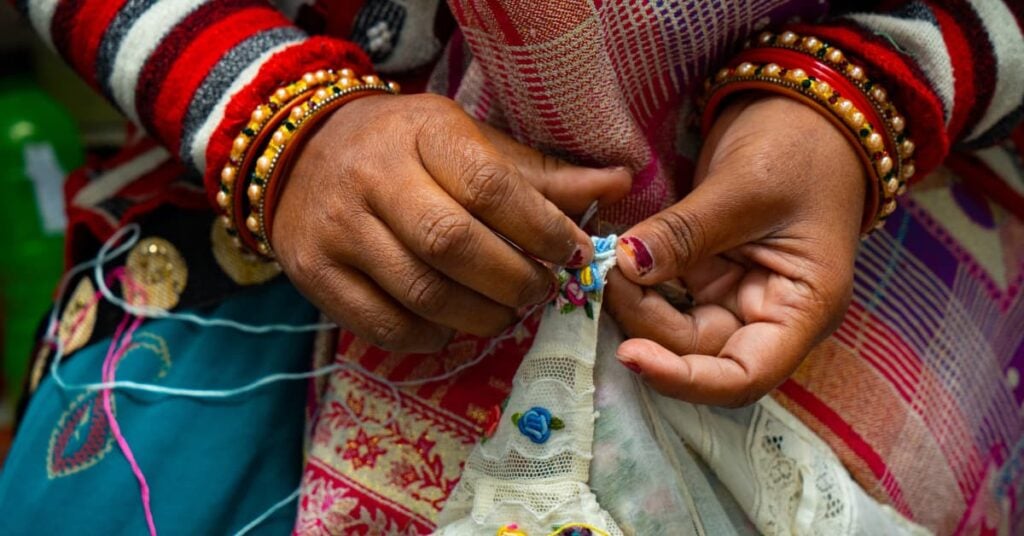This case study is part of AVPN Catalytic Capital in Asia research, which explores how catalytic capital has been deployed in different parts of Asia.
Artha Impact
Structure: Dedicated advisor to single family office with focus on impact investment
Year established: 2006
Market-based in: Switzerland
Market active in: India
Key Impact Areas: Agriculture, healthcare, skills development and education
Affiliated organisations: Rianta Capital Zurich, Singh Family Trust, Artha Networks Inc.
Artha Impact is the impact investing programme based out of Rianta Capital Zurich AG, investment advisor to the Singh Family Trust. Artha Impact facilitates deployments of patient capital with an average timeframe of 5-7 years or more, with a goal of investing in early-growth stage high impact businesses in India that focus on underserved communities.
The group believes in taking risks where others may not, often providing capital to businesses earlier than others, paving the way for enterprise growth. Artha Impact supports the development and the de-risking of businesses that can scale and raise millions of dollars further down the line and eventually attract larger equity investors. The portfolio includes direct equity investments and a small number of funds.
Catalytic capital in action
Systematically attracting investment from co-investors by building the impact investing ecosystem
Artha Impact often facilitates co-investments with peer (and on occasion, local) investors to strengthen their local networks, partnerships, and market presence. It has a particularly long-standing relationship with Menterra Ventures based in Bangalore, with whom it has co-invested systematically over the last several years – and in whose second fund Artha is now a cornerstone investor. As co-investments, collaboration among funders, and the ability of one investor’s capital to attract wider investments do not happen overnight, Artha Impact is committed to building trust and fostering an impact investing ecosystem where investors, investees and other players can connect with, identify one another and coordinate respective workflows.
Artha Impact works systematically to serve the goal of collaboration, not only through the investments but through its convenings and initiatives. One such initiative, the Artha Venture Challenge (AVC), was designed to catalyse co-investment, and establish investible pipelines for Artha Impact. For approximately 6 years it ran the competition aiming to discover promising early stage social entrepreneurs in India. The finalists of the AVC would receive between 9-18 months of free technical assistance from Artha Impact’s local partners, and could then apply for USD 50,000-100,000 in matched funding from Artha Impact if they were able to raise USD 50,000 in loan, equity or grants from other co-investors. By adopting this format Artha Impact was able to identify and add new companies to the portfolio, catalyse capital from other funders and, to some extent, de-risk their investments.
Artha Impact recognises that there is a lack of coordination and interaction between commercial investors, impact investors, and potential investees, partly due to a fragmented, noisy ecosystem and the absence of an appropriate information infrastructure connecting all stakeholders. To overcome common challenges that funders face, Artha Impact has adopted several different approaches. It advised on the establishment of a separate entity, Artha Networks Inc., to develop and license a platform which provides information about opportunities, pipeline and search capabilities to identify enterprises. The platform also hosts a suite of due diligence templates and tools to ease the process and transaction costs involved in appraising smaller-sized investments in emerging markets. Artha Impact has also worked with social enterprise incubators such as Villgro, to scout for funding opportunities in agriculture and other sectors[1]. Additionally, Artha Impact has run the Impact for Breakfast Club[2] for more than 15 years, convening an informal network of over 3,600 family offices, foundations, funds, venture philanthropists and intermediaries in more than 33 cities to share knowledge and discuss topics related to social enterprises and social investments.
Deploying patient capital to support market building by social entrepreneurs in underserved communities
Aakar Innovations – a Mumbai-based social enterprise that succeeded in the 2013 round of Artha Impact’s AVC competition[3], exemplifies why capital often needs to be patient in order to effect on-the-ground change. In India, only 36% of 335 million menstruating women use sanitary napkins for their personal hygiene needs and 70% of Indian families cannot afford the sanitary napkins currently available in the market. Aakar provides low-cost solutions for production, distribution, marketing and sales of affordable and compostable sanitary pads[4].
The production of pads takes place in local communities where the product is otherwise unavailable, often on machines manufactured by Aakar themselves. In addition, the company manages the supply chain, all of which helps to keep costs low and promote economic development. Aakar also supports the quality of health in the community and creates demand for its product by working to raise awareness and sensitization to menstrual hygiene management. Building this holistic offer takes time, which Aakar is able to afford because of the patient capital investment facilitated through Artha Impact. After seven years, Aakar has been able to refine the quality of the product, which is on par with mainstream pads, and establish B2B and B2C business models. Artha Impact intends to recommend exiting the investment once the company is stable and its model is sustainable and scalable.
If you are interested to learn more about catalytic capital, click here.
Read other catalytic capital case studies here:
[1] Peer, N, 2019, Swiss investor Rianta Capital Zurich is scouting for impact investments in India
[2] Impact for Breakfast is an informal network of family offices, foundations, funds, venture philanthropy and intermediary organizations with a common focus on social enterprise, entrepreneurship and impact investing.
[3] Rai, A., 2014, A look at the 9 social ventures that will each receive 50k in funding as part of the Artha Venture Challenge 2013
[4] AVPN, 2021, SAICF Healthcare W1D2: Improving Access to Affordable Healthcare Through Critical Investments

















